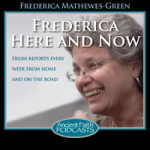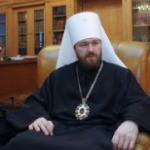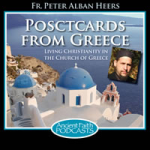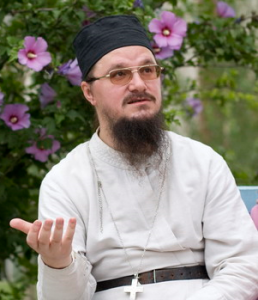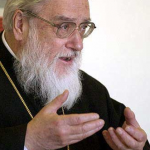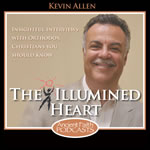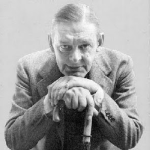
Deprecated: trim(): Passing null to parameter #1 ($string) of type string is deprecated in /home/aoiusa/public_html/wp-content/plugins/sexybookmarks/public.php on line 388
Deprecated: trim(): Passing null to parameter #1 ($string) of type string is deprecated in /home/aoiusa/public_html/wp-content/plugins/sexybookmarks/public.php on line 394
Deprecated: trim(): Passing null to parameter #1 ($string) of type string is deprecated in /home/aoiusa/public_html/wp-content/plugins/sexybookmarks/public.php on line 400
 Below is a rare recording taken from a live interview T.S. Eliot did for the BBC during World War II. Eliot reads his poem “The Journey of Magi” where the sojourner retraces the steps of the Magi in his own time and place. The poem recalls a time when the knowledge of Christ was more widespread than it is today, and those who have come to the Orthodox faith and grasped the power of the Gospel of Jesus Christ that rests at its center, like a babe lying in the manger, will understand its penetration into the symbolic, and thus sacred, dimensions of every day existence.
Below is a rare recording taken from a live interview T.S. Eliot did for the BBC during World War II. Eliot reads his poem “The Journey of Magi” where the sojourner retraces the steps of the Magi in his own time and place. The poem recalls a time when the knowledge of Christ was more widespread than it is today, and those who have come to the Orthodox faith and grasped the power of the Gospel of Jesus Christ that rests at its center, like a babe lying in the manger, will understand its penetration into the symbolic, and thus sacred, dimensions of every day existence.
I have included both the poem and a literary analysis alongside it that was written in 1956. We might quibble with the critic’s exaggerated sense of existential despair when he asserts that the new birth brings no new hope or clarified vision (the latter apparent in the last line), but overall it’s a fair-minded reading. Much literary criticism, like much historiography, was better before ideology captured the minds of our thinkers from the 1960s onward; when the religious foundation of culture was still perceived and acknowledged, even nominally. That foundation needs to be recovered and like Nehemiah, the walls need to be rebuilt.
T.S. Eliot was born in America in 1888 and moved to England in 1914 when he was 25 years old. He was naturalized a British subject two years later and converted to the Anglican Church from Unitarianism the same year. He proclaimed himself a “classicist in literature, royalist in politics, and anglo-catholic [sic] in religion.” (Source: Wikipedia.)
The recording begins with a short introduction and then follows with Eliot’s reading.
Listen here:

| The Journey of the Magi by T.S. Eliot | On “The Journey of the Magi” by Grover Smith |
|
“A cold coming we had of it, Just the worst time of the year For a journey, and such a journey: The ways deep and the weather sharp, The very dead of winter.’ And the camels galled, sore-footed, refractory, Lying down in the melting snow. There were times we regretted The summer palaces on slopes, the terraces, And the silken girls bringing sherbet.’ ‘Then the camel men cursing and ‘Then at dawn we came down to a ‘All this was a long time ago, I |
Journey of the Magi” is the monologue of a man who has made his own choice, who has achieved belief in the Incarnation, but who is still part of that life which the Redeemer came to sweep away. Like Gerontion, he cannot break loose from the past. Oppressed by a sense of death-in-life (Tiresias’ anguish “between two lives”), he is content to submit to “another death” for his final deliverance from the world of old desires and gods, the world of “the silken girls.” It is not that the Birth that is also Death has brought him hope of a new life, but that it has revealed to him the hopelessness of the previous life. He is resigned rather than joyous, absorbed in the negation of his former existence but not yet physically liberated from it. Whereas Gerontion is “waiting for rain” in this life, and the hollow men desire the “eyes” in the next life, the speaker here has put behind him both the life of the senses and the affirmative symbol of the Child; he has reached the state of desiring nothing. His negation is partly ignorant, for he does not understand in what way the Birth is a Death; he is not aware of the sacrifice. Instead, he himself has become the sacrifice; he has reached essentially, on a symbolic level true to his emotional, if not to his intellectual, life, the humble, negative stage that in a mystical progress would be prerequisite to union. Although in the literal circumstances his will cannot be fixed upon mystical experience, because of the time and condition of his existence, he corresponds symbolically to the seeker as described by St. John of the Cross in The Ascent of Mount Carmel. Having first approached the affirmative symbol, or rather, for him, the affirmative reality, he has experienced failure; negation is his secondary option. The quest of the Magi for the Christ child, a long arduous journey against the discouragement of nature and the hostility of man, to find at last, a mystery impenetrable to human wisdom, was described by Eliot in strongly colloquial phrases adapted from one of Lancelot Andrewes’ sermons of the Nativity:
Also in Eliot’s thoughts were the vast oriental deserts and the camel caravans and marches described in Anabase, by St.-J. Perse. He himself had begun work in 1926 on an English translation of that poem, publishing it in 1930. Other elements of his tone and imagery may have come from Kipling’s “The Explorer” and from Pound’s “Exile’s Letter.” The water mill was recollected from his own past; for in The Use of Poetry, speaking of the way in which “certain images recur, charged with emotion,” he was to mention “six ruffians seen through an open window playing cards at night at a small French railway junction where there was a water-mill.” In vivifying the same incident, the fine proleptic symbolism of “three trees on the low sky,” a portent of Calvary, with the evocative image of “an old white horse” introduces one of the simplest and most pregnant passages in all of his work:
Here are allusions to the Communion (through the tavern “bush”), to the paschal lamb whose blood was smeared on the lintels of Israel, to the blood money of Judas, to the contumely suffered by Christ before the Crucifixion, to the soldiers casting lots at the foot of the Cross, and, perhaps, to the pilgrims at the open tomb in the garden. The arrival of the Magi at the place of Nativity, whose symbolism has been anticipated by the fresh vegetation and the mill “beating the darkness,” is only a “satisfactory” experience. The narrator has seen and yet he does not fully understand; he accepts the fact of Birth but is perplexed by its similarity to a Death, and to death which he has seen before:
Were they led there for Birth or for Death? or, perhaps, for neither? or to make a choice between Birth and Death? And whose Birth or Death was it? their own, or Another’s? Uncertainty leaves him mystified and unaroused to the full splendor of the strange epiphany. So he and his fellows have come back to their own Kingdoms, where,
(which are now alien gods), they linger not yet free to receive “the dispensation of the grace of God.” The speaker has reached the end of one world, but despite his acceptance of the revelation as valid, he cannot gaze into a world beyond his own.  From T.S. Eliot’s Poetry and Plays: A Study in Sources and Meaning. Chicago: University of Chicago Press, 1956. Source: Modern American Poetry. |
